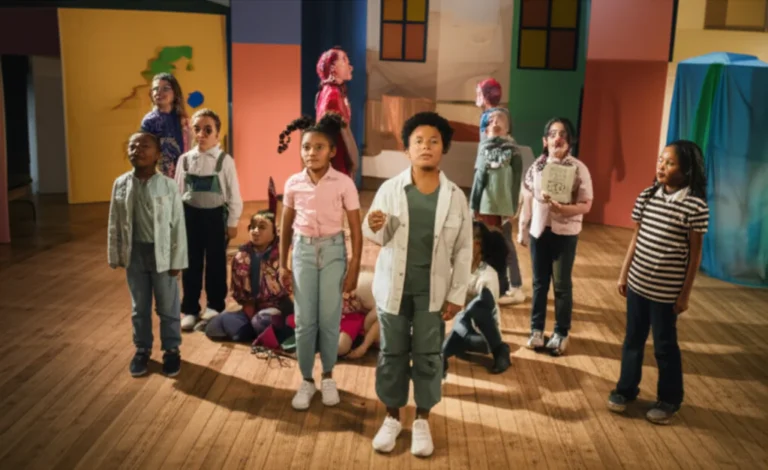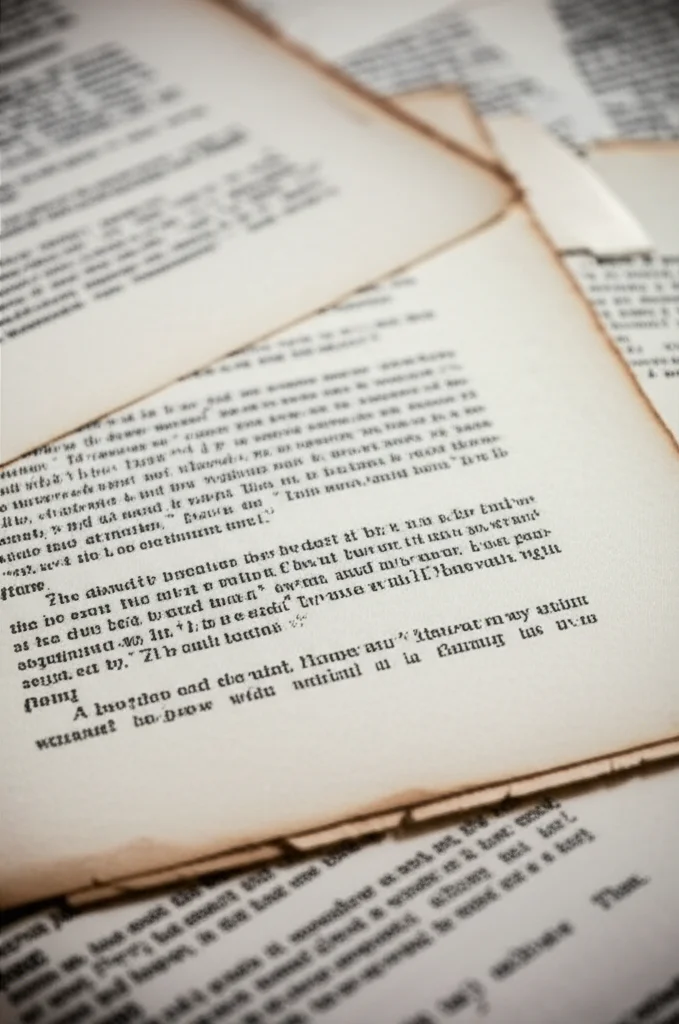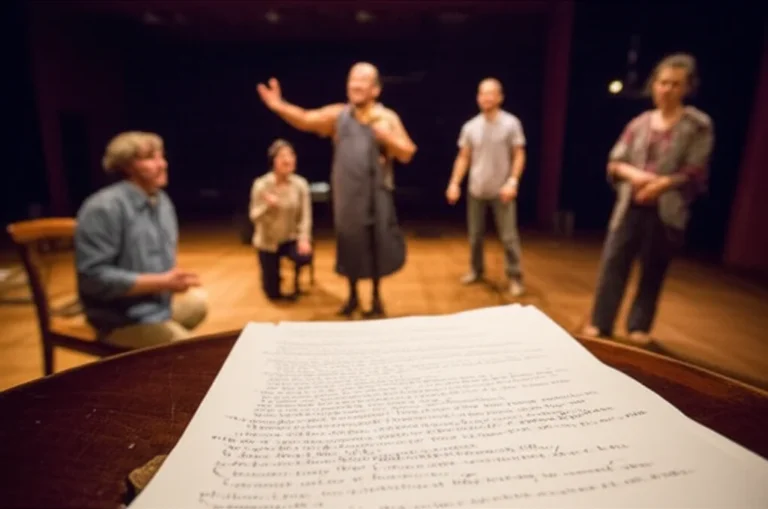Support our educational content for free when you purchase through links on our site. Learn more
15 Must-Read Full Play Scripts to Ignite Your Stage in 2025 🎭
Imagine stepping into a bustling rehearsal room where every line, every gesture, and every scene breathes life into a story that captivates an audience from start to finish. That’s the magic of a full play script—a complete theatrical journey that transforms classrooms, community centers, and theaters into worlds of drama, comedy, and unforgettable moments. Whether you’re a teacher hunting for the perfect script for your school’s next production or a director eager to discover fresh material, this guide will lead you through the best full-length plays, where to find them, how to navigate licensing, and tips to bring them alive on stage.
Did you know that the average full play runs between 60 and 120 minutes, offering rich character development and complex plots that short plays simply can’t match? But beware—choosing the right script is just the beginning. Later, we’ll reveal insider secrets on securing performance rights, adapting scripts, and avoiding common pitfalls that can derail your production. Ready to unlock your creative potential? Let’s dive in!
Key Takeaways
- Full play scripts offer immersive storytelling ideal for educational and community theatre settings, with diverse genres from classic tragedies to contemporary dramas.
- Reliable sources like Concord Theatricals, Dramatists Play Service, and Playscripts.com provide extensive catalogs and clear licensing options.
- Licensing is essential—never perform without securing rights to avoid legal issues and support playwrights.
- Digital tools and collaborative approaches enhance interpretation and production of full-length plays.
- Public domain classics and new works both have a place; knowing when and how to adapt or write your own script can expand your theatrical horizons.
👉 Shop full play scripts and resources:
- Concord Theatricals: Amazon | Official Site
- Dramatists Play Service: Amazon | Official Site
- Playscripts.com Full-Length Plays: Browse Here
- Scriptwriting Software (Final Draft, Celtx): Amazon | Amazon
Table of Contents
- ⚡️ Quick Tips and Facts: Your Fast-Track to Full Play Script Wisdom! 🎭
- 📜 The Grand Tapestry of Full Play Scripts: A Journey Through Theatrical History
- ✨ Why Dive Headfirst into Full Play Scripts? Unlocking Your Creative Stage Potential!
- 1. 🗺️ Unearthing Your Treasure: Top Sources for Full Play Scripts
- 1.1. The Digital Goldmine: Online Databases & Publishers (e.g., Concord Theatricals, Dramatists Play Service, Samuel French)
- 1.2. Literary Lighthouses: University Archives & Public Libraries
- 1.3. Independent Voices: Connecting Directly with Playwrights & Emerging Platforms
- 1.4. Specialized Niche Markets: Children’s Theatre, Educational Theatre, Community Theatre Resources
- 1.5. The Public Domain Playground: Classic Scripts for Free!
- 🧐 Decoding the Drama: Understanding Different Types of Full Play Scripts
- ⚖️ The Legal Labyrinth: Navigating Performance Rights and Play Licensing for Full Scripts
- Understanding Copyright: The Playwright’s Protection
- Perusal vs. Production: Why You Can’t Just Print It!
- Royalties and Fees: The Cost of Bringing Stories to Life
- Securing Your License: Step-by-Step for Theatrical Production
- Common Misconceptions & Pitfalls to Avoid (e.g., “It’s for charity, so it’s free!”)
- 🎬 From Page to Stage: A Director’s & Actor’s Guide to Interpreting Full Play Scripts
- ✍️ Beyond the Original: Adapting, Editing, and Even Writing Your Own Full Play Script
- 🛠️ Essential Tools & Resources for Working with Full Play Scripts
- 🚧 Common Script Snafus: Avoiding Disasters in Your Theatrical Journey
- 🌐 The Future of Full Play Scripts: Digital Frontiers and Evolving Theatrical Landscapes
- 🌟 Conclusion: Your Stage Awaits! The Curtain Call on Full Play Scripts
- 🔗 Recommended Links: Dive Deeper into the World of Theatre!
- 🤔 FAQ: Your Burning Questions About Full Play Scripts Answered!
- 📚 Reference Links: Our Sources & Further Reading for Theatrical Enthusiasts
⚡️ Quick Tips and Facts: Your Fast-Track to Full Play Script Wisdom!
Welcome to the thrilling world of full play scripts—where stories leap off the page and onto the stage! Whether you’re a drama teacher hunting for the perfect script for your next school production or a director scouting fresh material, we at School Play Scripts™ have your back. Before diving deep, here are some quick tips and facts to get you started:
- Full play scripts typically run between 60 and 120 minutes, often split into two or three acts.
- The cast size can vary wildly—from intimate 3-person dramas to ensemble pieces with 40+ actors!
- Licensing is crucial: even if a script is free or public domain, performance rights often require fees and permissions.
- Public domain classics like Shakespeare’s Romeo and Juliet are free to perform but may need adaptation rights if using modern versions.
- Digital scripts (eScripts) are great for rehearsal but usually cannot be printed without a license.
- Genres range from comedy and tragedy to musicals and experimental theatre—choose one that fits your cast and audience.
- Always check if a script has educational versions or stage manager editions for smoother productions.
Curious about where to find these gems or how to navigate licensing? Keep reading—we’re just warming up! For a treasure trove of ideas, check out our related article on 101+ School Play Script Ideas to Wow Your Cast (2025) 🎭.
📜 The Grand Tapestry of Full Play Scripts: A Journey Through Theatrical History

How did full-length plays become the backbone of theatre? Let’s unravel the story:
The Evolution of Full-Length Plays
From the Greek tragedies of Sophocles and Euripides, which introduced multi-act storytelling, to Shakespeare’s richly layered dramas, full plays have always been about immersing audiences in complex worlds. The two-act structure became popular in the 19th century, allowing for intermissions and scene changes.
Why Full Plays Matter Today
Full-length scripts offer depth and development—characters grow, conflicts escalate, and themes unfold fully. They provide a canvas for schools and community theatres to explore meaningful stories, from classics like Romeo and Juliet (Folger Shakespeare Library) to contemporary works like the 1944 munitions factory drama from Playscripts.com.
Anecdote from Our Educators
One of our drama teachers recalls directing a full-length play about WWII women workers. The ensemble cast of 40 students brought history alive, teaching empathy and teamwork beyond the classroom. Full plays are not just scripts—they’re educational journeys.
✨ Why Dive Headfirst into Full Play Scripts? Unlocking Your Creative Stage Potential!
Why settle for a short skit when you can dive into a full play? Here’s why full-length scripts are a game-changer:
- Comprehensive storytelling: You get to explore complex characters and layered plots.
- Skill-building: Longer rehearsals develop acting, directing, and technical skills.
- Audience engagement: Full plays offer richer experiences, keeping audiences hooked.
- Community building: Larger casts foster inclusivity and teamwork.
But beware! Full plays demand more time, resources, and commitment. Our advice? Start with scripts that match your cast size and rehearsal schedule.
1. 🗺️ Unearthing Your Treasure: Top Sources for Full Play Scripts
Finding the right full play script can feel like hunting for buried treasure. Here’s your map:
1.1. The Digital Goldmine: Online Databases & Publishers
Some of the most trusted sources include:
| Publisher | Highlights | Licensing Info | Link |
|---|---|---|---|
| Concord Theatricals | Huge catalog, including musicals & dramas | Clear licensing, per performance fees | Concord Theatricals |
| Dramatists Play Service | Contemporary & classic full-length plays | Easy online licensing | Dramatists Play Service |
| Samuel French (now part of Concord) | Extensive library, educational scripts | Detailed rights info | Samuel French |
| Playscripts.com | New works, educational focus | Digital scripts & archival licenses | Playscripts.com |
1.2. Literary Lighthouses: University Archives & Public Libraries
Many universities digitize their theatre collections. Public libraries often have physical copies of scripts and can help with interlibrary loans.
1.3. Independent Voices: Connecting Directly with Playwrights & Emerging Platforms
Platforms like New Play Exchange connect you with new playwrights eager to share full-length works, often with flexible licensing.
1.4. Specialized Niche Markets
For children’s theatre or educational plays, check out:
1.5. The Public Domain Playground: Classic Scripts for Free!
Sites like Project Gutenberg and Internet Archive offer free access to classics such as Shakespeare, Ibsen, and Molière. Just remember: performance rights may still apply for modern editions!
🧐 Decoding the Drama: Understanding Different Types of Full Play Scripts
Not all full plays are created equal. Let’s break down the types you’ll encounter:
One-Act Wonders vs. Full-Length Epics
- One-act plays are short, usually under 30 minutes, great for festivals or warm-ups.
- Full-length plays span multiple acts, allowing for richer storytelling.
Musical Magic vs. Straight Play Power
- Musicals combine dialogue, song, and dance—think The Sound of Music or Annie.
- Straight plays focus on spoken dialogue and dramatic action.
Comedy, Tragedy, Farce, Oh My! Genre Exploration
Genres shape tone and style:
| Genre | Description | Example Play |
|---|---|---|
| Comedy | Light-hearted, often humorous | The Importance of Being Earnest |
| Tragedy | Serious, often with a sad ending | Romeo and Juliet |
| Farce | Exaggerated, slapstick humor | Noises Off |
| Drama | Emotional, character-driven | Badger Ordnance Works (Playscripts.com) |
| Musical | Combines music and story | Les Misérables |
Classic Masterpieces vs. Contemporary Voices
- Classics offer timeless themes and language.
- Contemporary plays often tackle modern issues and diverse voices.
⚖️ The Legal Labyrinth: Navigating Performance Rights and Play Licensing for Full Scripts
Here’s where many stumble—licensing! Let’s clear the fog.
Understanding Copyright: The Playwright’s Protection
Copyright protects the playwright’s creative work, usually for the author’s lifetime plus 70 years. This means:
- You cannot perform or reproduce a script without permission unless it’s public domain.
- Modern editions and adaptations often have separate rights.
Perusal vs. Production: Why You Can’t Just Print It!
- Perusal copies are for reading only, often free or low-cost.
- Production rights must be purchased to perform the play publicly.
Royalties and Fees: The Cost of Bringing Stories to Life
Licensing fees vary by:
- Audience size
- Number of performances
- Venue type (school, community, professional)
For example, the WWII drama from Playscripts.com charges a minimum performance fee of $105.
Securing Your License: Step-by-Step for Theatrical Production
- Identify the rights holder (publisher or playwright).
- Request a license for your specific dates and venue.
- Pay the required fees.
- Receive official permission and scripts (digital or print).
- Keep records for compliance.
Common Misconceptions & Pitfalls to Avoid
- ❌ “It’s for charity, so it’s free!” — Nope, rights holders still expect fees.
- ❌ Using a script found online without verifying rights.
- ❌ Ignoring renewal or extension requirements for multi-performance runs.
🎬 From Page to Stage: A Director’s & Actor’s Guide to Interpreting Full Play Scripts
Bringing a script to life is an art. Here’s how to get started:
Unpacking Stage Directions: More Than Just Blocking
Stage directions reveal mood, pacing, and character intentions. Don’t skim! They’re your roadmap for movement and atmosphere.
Character Deep Dive: Finding the Heart of the Role
Actors should explore:
- Backstory (even if not in script)
- Motivations and desires
- Relationships with other characters
Subtext & Nuance: Reading Between the Lines
What’s not said often matters more than dialogue. Directors and actors must tune into pauses, gestures, and tone.
Pacing, Rhythm, and Flow: Bringing the Script to Life
A well-paced play keeps audiences engaged. Experiment with tempo and energy during rehearsals.
Collaborative Creativity: Working with the Script as a Team
Encourage input from actors, designers, and crew. The script is a living document that blossoms through collaboration.
✍️ Beyond the Original: Adapting, Editing, and Even Writing Your Own Full Play Script
Feeling inspired to tweak or create? Here’s the lowdown:
The Art of Adaptation: When Can You Tweak a Classic?
- Public domain works can be freely adapted.
- Modern copyrighted plays require permission for edits.
Script Doctoring: Polishing Your Own or Others’ Works
Editing can tighten dialogue, clarify plot, or adjust length. Always credit original authors.
Commissioning New Works: Supporting Emerging Playwrights
Schools and theatres can commission scripts tailored to their needs—great for inclusivity and fresh stories.
The Thrill of Creation: Penning Your Own Full-Length Play
Writing your own play? Focus on:
- Strong characters
- Clear conflict
- Engaging dialogue
- A satisfying arc
🛠️ Essential Tools & Resources for Working with Full Play Scripts
Equip yourself with these essentials:
Script Reading Software & Apps
- Final Draft: Industry standard for script formatting.
- Celtx: Affordable and cloud-based.
- StageAgent: Great for script analysis and character breakdowns.
Rehearsal Tracking Tools
- Rehearsal Pro: Blocks, notes, and scheduling.
- Scenechronize: For complex productions.
Online Communities & Forums for Playwrights & Producers
- Reddit r/Theatre: Peer advice and script sharing.
- New Play Exchange: Discover and license new plays.
Recommended Books on Playwriting & Directing
- The Playwright’s Guidebook by Stuart Spencer
- Directing Actors by Judith Weston
🚧 Common Script Snafus: Avoiding Disasters in Your Theatrical Journey
Even seasoned pros trip up sometimes. Watch out for:
Choosing the Wrong Script for Your Audience/Cast
- Too complex for young actors? ❌
- Themes not age-appropriate? ❌
Ignoring Licensing Requirements (Big No-No! ❌)
- Always verify rights before rehearsals start.
Underestimating Production Demands of a Full Play
- Large casts and sets require more time and budget.
Poor Communication with Rights Holders
- Keep all correspondence documented.
🌐 The Future of Full Play Scripts: Digital Frontiers and Evolving Theatrical Landscapes
Theatre is evolving, and so are scripts:
- Digital scripts and eScripts are becoming standard, with platforms like Playscripts.com leading the way.
- Virtual performances demand new licensing models.
- Interactive and immersive scripts are emerging, blending technology and storytelling.
Our educators are excited about these innovations—they open doors for accessibility and creativity like never before!
🌟 Conclusion: Your Stage Awaits! The Curtain Call on Full Play Scripts

Bravo! You’ve journeyed through the vibrant world of full play scripts—from their rich history and diverse genres to the crucial legalities and creative processes that bring them to life. Whether you’re selecting a classic like Romeo and Juliet (Folger Shakespeare Library) or a contemporary drama such as the WWII women’s factory story from Playscripts.com, you now have the tools and insights to make an informed choice for your next production.
Key takeaways:
- Full-length plays offer depth, engagement, and educational value but require careful planning and licensing.
- Trusted sources like Concord Theatricals, Dramatists Play Service, and Samuel French provide a wealth of scripts with clear rights management.
- Understanding licensing is non-negotiable—don’t risk your production by skipping this step!
- Collaboration and interpretation transform a script from words on a page to a living, breathing performance.
- The future is bright with digital scripts and innovative theatrical forms expanding access and creativity.
If you’ve ever wondered how to find that perfect script or navigate the maze of rights and production demands, rest assured—you’re now equipped to take center stage confidently. Remember, the right script can ignite your cast’s passion and captivate your audience, making all the hard work worthwhile.
So, what’s stopping you? The curtain is rising, and your stage awaits!
🔗 Recommended Links: Dive Deeper into the World of Theatre!
Ready to explore or purchase scripts and resources? Here are some top picks:
- Concord Theatricals: Amazon Search: Concord Theatricals Full Plays | Concord Theatricals Official Website
- Dramatists Play Service: Amazon Search: Dramatists Play Service | Dramatists Play Service Official Website
- Samuel French (Concord): Amazon Search: Samuel French Plays | Samuel French Official Website
- Playscripts.com: Playscripts Full-Length Plays
- Final Draft Script Software: Amazon Link
- Celtx Scriptwriting Software: Amazon Link
- Recommended Books:
- The Playwright’s Guidebook by Stuart Spencer — Amazon Link
- Directing Actors by Judith Weston — Amazon Link
🤔 FAQ: Your Burning Questions About Full Play Scripts Answered!

Where can I find free full play scripts for schools?
Finding free full play scripts is easier than you think, especially for educational use. Public domain classics like Shakespeare’s works are freely available on sites such as Project Gutenberg and Internet Archive. For example, Romeo and Juliet is fully accessible via the Folger Shakespeare Library.
Additionally, some educational theatre websites and community theatre groups share scripts at no cost, but always verify performance rights before staging a production. Remember, free reading copies don’t automatically grant performance licenses.
Read more about “15 Best One Act Play Scripts for Schools 🎭 (2025 Edition)”
What are some popular play scripts for high school students to perform?
High school productions often balance challenging material with age-appropriate themes and cast size flexibility. Popular choices include:
- Romeo and Juliet by William Shakespeare (classic tragedy)
- Our Town by Thornton Wilder (American classic)
- The Outsiders adapted by Christopher Sergel (contemporary drama)
- The Diary of Anne Frank adapted by Wendy Kesselman (historical drama)
- Badger Ordnance Works (Playscripts.com) for ensemble drama with historical themes
These plays offer rich roles and educational value, making them perennial favorites.
Read more about “15 Best Free Plays to Read Online in 2025 🎭”
How do I obtain the rights to perform a full play script for my school production?
Obtaining rights is a step-by-step process:
- Identify the rights holder—usually the publisher or playwright.
- Contact them via their official website or licensing platform (e.g., Concord Theatricals, Dramatists Play Service).
- Provide details: performance dates, venue, audience size, and whether it’s a school or community production.
- Pay the required performance fees or royalties.
- Receive official permission and authorized scripts.
Never perform without a license—it’s both illegal and unfair to playwrights who rely on royalties.
What are some websites that offer full play scripts for elementary school plays?
For younger performers, scripts need to be age-appropriate, engaging, and manageable. Check out:
- School Play Scripts™ Elementary School Plays — curated scripts designed for young actors.
- Drama Notebook — offers scripts and teaching resources.
- Playscripts.com — a selection of elementary-friendly full plays.
These platforms often provide educational versions and flexible licensing tailored to schools.
Read more about “25 Hilarious Comedy School Play Scripts to Try in 2025 🎭”
📚 Reference Links: Our Sources & Further Reading for Theatrical Enthusiasts
- Concord Theatricals Official Website
- Dramatists Play Service Official Website
- Samuel French (Concord) Official Website
- Playscripts.com Full-Length Plays
- Folger Shakespeare Library: Romeo and Juliet – Entire Play
- Project Gutenberg
- Internet Archive
- New Play Exchange
- School Play Scripts™ Elementary School Plays
Ready to bring your next full play script to life? Dive into these resources and let your creativity shine! 🎭



